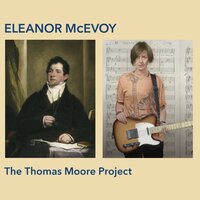| Though Humble the Banquet (original) | Though Humble the Banquet (traducción) |
|---|---|
| Though humble the banquet to which I invite thee | Aunque humilde el banquete al que te invito |
| Thou’lt find there the best a poor bard can command; | Encontrarás allí lo mejor que un pobre bardo puede dominar; |
| Eyes, beaming with welcome, shall throng round, to light thee | Los ojos, radiantes de bienvenida, se agolparán a tu alrededor para iluminarte. |
| And Love serve the feast with her own willing hand | Y el amor sirve la fiesta con su propia mano dispuesta |
| Though Fortune may seem to have turn’d from the dwelling | Aunque parezca que la fortuna se ha apartado de la morada |
| Of her thou regardest her favouring ray | De ella miras su rayo favorable |
| Thou wilt find there a gift, all her treasures excelling | Encontrarás allí un regalo, todos sus tesoros superando |
| Which, proudly she feels, hath ennobled her way | Que, orgullosamente siente, ha ennoblecido su camino |
| It’s that freedom of mind, which no vulgar dominion | Es esa libertad de la mente, que ningún dominio vulgar |
| Can turn from the path a pure conscience approves | Puede apartarse del camino que aprueba una conciencia pura |
| Which, with hope in the heart, and no chain on the pinion | Que, con esperanza en el corazón, y sin cadena en el piñón |
| Holds upwards its course to the light which it loves | Mantiene hacia arriba su curso hacia la luz que ama |
| 'Tis this makes the pride of her humble retreat | Esto hace que el orgullo de su humilde retiro |
| And with this, though of all other treasures bereaved | Y con esto, aunque de todos los demás tesoros privados |
| The breeze of her garden to her is more sweet | La brisa de su jardín para ella es más dulce |
| Than the costliest incense that Pomp e’er received | Que el incienso más costoso que recibió Pomp e'er |
| Then, come, if a board so untempting hath power | Entonces, vamos, si una tabla tan poco tentadora tiene poder |
| To win thee from grandeur, its best shall be thine; | Para conquistarte de la grandeza, lo mejor será tuyo; |
| And there’s one, long the light of the bard’s happy bower | Y hay uno, larga la luz de la feliz enramada del bardo |
| Who, smiling will blend his bright welcome with mine | que, sonriendo, mezclará su luminosa bienvenida con la mía |
| Though humble the banquet to which I invite thee | Aunque humilde el banquete al que te invito |
| Thou’lt find there the best a poor bard can command; | Encontrarás allí lo mejor que un pobre bardo puede dominar; |
| Eyes, beaming with welcome, shall throng round, to light thee | Los ojos, radiantes de bienvenida, se agolparán a tu alrededor para iluminarte. |
| And Love serve the feast with her own willing hand | Y el amor sirve la fiesta con su propia mano dispuesta |
| And Love serve the feast with her own willing hand | Y el amor sirve la fiesta con su propia mano dispuesta |
| Oh, Love serve the feast with her own willing hand | Oh, el amor sirve la fiesta con su propia mano dispuesta |
Traducción de la letra de la canción Though Humble the Banquet - Eleanor McEvoy

Información de la canción En esta página puedes leer la letra de la canción Though Humble the Banquet de -Eleanor McEvoy
Canción del álbum: The Thomas Moore Project
En el género:Иностранная авторская песня
Fecha de lanzamiento:28.09.2017
Idioma de la canción:Inglés
Sello discográfico:Moscodisc
Seleccione el idioma al que desea traducir:
¡Escribe lo que piensas sobre la letra!
Otras canciones del artista:
| Nombre | Año |
|---|---|
The Rain Falls ft. David Kitt | 2016 |
| 2012 | |
| 2016 | |
Isn't It a Little Late? ft. David Kitt | 2016 |
Leaves Me Wondering ft. David Kitt | 2016 |
Seasoned Love ft. David Kitt | 2016 |
Dreaming of Leaving ft. David Kitt | 2016 |
| 2008 | |
| 2012 | |
| 2007 | |
| 2012 | |
| 2012 | |
| 2012 | |
| 2012 | |
| 2012 | |
| 2012 | |
| 2012 | |
| 2012 | |
| 2012 | |
| 2015 |